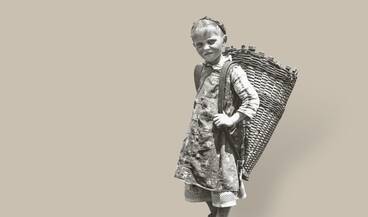Today
10:00 - 17:00
10:00 - 17:00
Tuesday till Sunday 10:00 - 17:00
Monday closed
Christmas Eve 24.12.2025 10:00 - 14:00
Christmas 25.12.2025 closed
St. Stephen´s Day 26.12.2025 10:00 - 17:00
New Year´s Eve 31.12.2025 10:00 - 14:00
New Year´s Day 01.01.2026 closed
Saint Berchtold 02.01.2026 10:00 - 17:00
Epiphany 06.01.2026 10:00 - 17:00
Carnival Thursday 12.02.2026 10:00 - 17:00
Carnival Monday 16.02.2026 closed
Shrove Tuesday 17.02.2026 10:00 - 17:00
Saint Joseph 19.03.2026 10:00 - 17:00
Good Friday 03.04.2026 closed
Easter 05.04.2026 10:00 - 17:00
Easter Monday 06.04.2026 10:00 - 17:00
Labour Day 01.05.2026 10:00 - 17:00
Mother´s Day 10.05.2026 10:00 - 17:00
Ascension Day 14.05.2026 10:00 - 17:00
Whitsun 24.05.2026 10:00 - 17:00
Whit Monday 25.05.2026 10:00 - 17:00
Corpus Christi 04.06.2026 10:00 - 17:00
Swiss National Holiday 01.08.2026 10:00 - 17:00
Assumption Day 15.08.2026 10:00 - 17:00
accessibility.openinghours.special_opening_hours.link
Show all10:00 - 17:00
Tuesday till Sunday 10:00 - 17:00
Monday closed
Christmas Eve 24.12.2025 10:00 - 14:00
Christmas 25.12.2025 closed
St. Stephen´s Day 26.12.2025 10:00 - 17:00
New Year´s Eve 31.12.2025 10:00 - 14:00
New Year´s Day 01.01.2026 closed
Saint Berchtold 02.01.2026 10:00 - 17:00
Epiphany 06.01.2026 10:00 - 17:00
Carnival Thursday 12.02.2026 10:00 - 17:00
Carnival Monday 16.02.2026 closed
Shrove Tuesday 17.02.2026 10:00 - 17:00
Saint Joseph 19.03.2026 10:00 - 17:00
Good Friday 03.04.2026 closed
Easter 05.04.2026 10:00 - 17:00
Easter Monday 06.04.2026 10:00 - 17:00
Labour Day 01.05.2026 10:00 - 17:00
Mother´s Day 10.05.2026 10:00 - 17:00
Ascension Day 14.05.2026 10:00 - 17:00
Whitsun 24.05.2026 10:00 - 17:00
Whit Monday 25.05.2026 10:00 - 17:00
Corpus Christi 04.06.2026 10:00 - 17:00
Swiss National Holiday 01.08.2026 10:00 - 17:00
Assumption Day 15.08.2026 10:00 - 17:00
accessibility.openinghours.special_opening_hours.link
Show allGuided tour with an expert
Schulen auf dem Land und Schulen in den Städten existierten lange vor der Gründung des Bundesstaates 1848. Dieser überliess die Verantwortung für die Volksschulbildung zunächst den Kantonen. Erst mit der Revision der Bundesverfassung 1874 werden erstmals verbindliche Minimalanforderungen an Primarschulen formuliert, der Primarschulunterricht für alle Kinder in der Schweiz obligatorisch erklärt und der Unterricht selbst als unentgeltlich. Darüber hinaus legte die Bundesverfassung fest, dass der Primarunterricht ausschliesslich unter staatlicher Leitung zu stehen habe. Der lange Weg zur Schulpflicht ist von politischen, wirtschaftlichen und religiösen Interessen geprägt, die an der Führung näher betrachtet werden.
Zeughausstrasse 5
6430 Schwyz


Making hay, herding cattle, cutting peat, spooling and tatting – children have always supported their families in work, especially in farming. With the rise of industry, children were often exploited as cheap labour, above all in textile mills, and not least in Switzerland. They were forced to work long hours, took on dangerous or unhealthy tasks, and were often prevented from going go to school. Only after the introduction of compulsory schooling in 1874 and the adoption of the Federal Factory Law in 1877, education became a basic human right in Switzerland and children under the age of 14 were prohibited from working.
The exhibition shows many aspects of child labour in those early days and explains how children's rights were regulated in Switzerland. Special attention is given to the conditions in central Switzerland at that time.